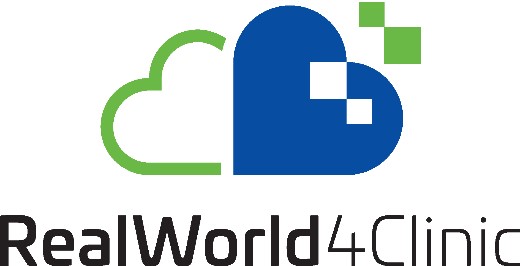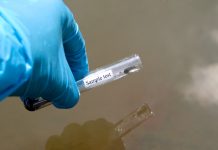RealWorld4Clinic is a new European initiative bringing real-world data to pivotal clinical research and outpatient cardiology care
Shortage of real-life data
Today episodic and reactive data acquisition in artificial environments is the standard in clinical research and guideline-oriented heart failure (HF) management. This practice limits the predictive power of clinical trials and opportunities for preventive care and leads to unacceptably high resource consumption in both drug development and heart failure (HF) management. Better availability of person-generated real-world data and an increased utilisation of real-life information can save lives and reduce costs significantly by helping to predict drug failure and HF aggravation.
Key issues in drug development and HF management
Developing a new drug from bench to market costs up to 1.5 billion € and takes around 15 years on average. Only one in 10 phase 1 candidates reaches the market and the failure rate in phase 3 is 50%, a key driver of drug prices. Drugs that show poor real-world effectiveness once released to the market of drugs threaten the life and health of citizens, generate costs in the order of billions and increase unrealistic value propositions for patients, healthcare providers and payers.
Because of the current clinical practice, early indicators of upcoming or ongoing aggravations in HF are often overlooked, which hinders the timely initiation of preventive HF management. HF causes 5% of acute hospitalisations and 2% of national health expenditures. 25-50% of patients with diabetes hospitalised for HF die within 3-5 years. In Europe, more than 15 Mio people have HF with a prevalence of 10-20% in people ≥70 years old.
The value of real-world data is widely accepted. However, according to current standards in clinical research and official guidelines for HF management, data are collected only episodically and reactively. This is mainly due to design and validation constraints: while available consumer-grade wearables allow for longer-term data collection in real-world environments, they are often ineligible for endpoint assessments in drug approval trials and guiding cardiology interventions in HF management.
Listening to the gut: the RealWorld4Clinic initiative
RealWorld4Clinic stands for “Real-World Cardio-Respiratory Health Monitoring for Clinical Contract Research & Telecardiology”. This innovative project intends to use artificial intelligence (AI)-powered exploitation of real-world data in pivotal clinical research and outpatient cardiology care. The consortium behind the project has the ambition to make a significant impact on the real-world effectiveness of treatments by boosting the convergence of clinical research & clinical care – thereby leveraging savings in the number of billions of euros.1
Aiming to achieve its goals, RealWorld4Clinic will launch an AI-powered sentinel – a coin-sized class III medical device anchored to the fundus of the stomach in immediate proximity to the heart and the lung. The medical device acquires a wide array of cardio-respiratory health parameters for artificial intelligence (AI)-powered exploitation in drug development and telecardiology.
Further, The AI-powered exploitation of data collected by the device enhances the quality of early decision making by pharma companies on clinical development programs. For clinical CROs, it offers the opportunity to enrich their portfolio by a full array of integrated Data Sciences services in compliance with all applicable regulations. By enabling the early consideration of real-world safety and tolerability patterns, the RealWorld4Clinic project will improve the predictive power of clinical trials by up to 50%.
The drug development market provides a well-regulated commercial framework for gathering rich learning experiences, gaining evidence and disseminating early success stories. Therefore, the drug development market is a stepping-stone towards outpatient cardiology care – RealWorld4Clinic’s priority market.
RealWorld4Clinic will transform the standard of care in outpatient cardiology care, shifting it from reactive to proactive HF management. It will integrate the continuous real-world acquisition of cardio-respiratory health data and AI-powered utilisation of digital biomarkers into the workflows of outpatient cardiology care and telemedical centers. By diagnosing HF aggravation 30 days before the catastrophic decompensation event occurs, RealWorld4Clinic will halve the number of days spent in a hospital while also reducing the number of ambulatory visits.
RealWorld4Clinic comprises a pan-European consortium
The consortium behind RealWorld4Clinic is diverse and mutually reinforcing. It integrates next-generation technology and business owners with representatives of the target markets including clinical research centres and maximum care hospitals. This enables a co-creative approach at the heart of clinical research & chronic care provision, accompanied by tackling ethical, legal and social issues, the design of training and education modules, and the provision of tools for outcome prediction and performance measurement. By this means, the consortium will secure the full regulatory compliance and a high user acceptance of its offer in clinical contract research and outpatient cardiology care.
Profil GmbH – a full-service CRO for early clinical trials in diabetes, obesity and cardiometabolic disease – coordinates the RealWorld4Clinic initiative in collaboration with SentinHealth and supported by LINQ management GmbH. Profil GmbH is a co-founder of the EIT Health Knowledge and Innovation Community – the network of top-of-the-range health innovators supported by the European Union.
RealWorld4Clinic is curated by EIT Health
RealWorld4Clinic established a new strategic collaboration facilitated by EIT Health[1]. Being part of the EIT Health innovation portfolio is a great privilege for the RealWorld4Clinic consortium. It facilitates the co-creation of the RealWorld4Clinic product and service package at the heart of clinical contract research, clinical cardiology and data sciences. Through the provision of financial funding and joining forces for tackling cross-border barriers to digital health EIT Health shortens time-to-market. Moreover, the EIT Health ELSI Board helps to resolve ethical, legal and social issues related to the acquisition and AI-powered exploitation of cardio-respiratory health data. That way the EIT Health innovation ecosystem supports the RealWorld4Clinic consortium in achieving its ultimate ambition, i.e. making cardio-respiratory real-world monitoring of health a standard in clinical research and outpatient cardiology care.
Footnotes
120025-RealWorld4Clinic “Real-World Cardio-Respiratory Health Monitoring for Clinical Contract Research & Telecardiology“ is an innovation project supported by EIT Health, a network of best-in-class health innovators that collaborates across borders and delivers solutions to enable European citizens to live longer, healthier lives. EIT Health is supported by the EIT, a body of the European Union (eithealth.eu).

The support of Tatiana Affini Dicenzo in preparing this article is greatly acknowledged.








